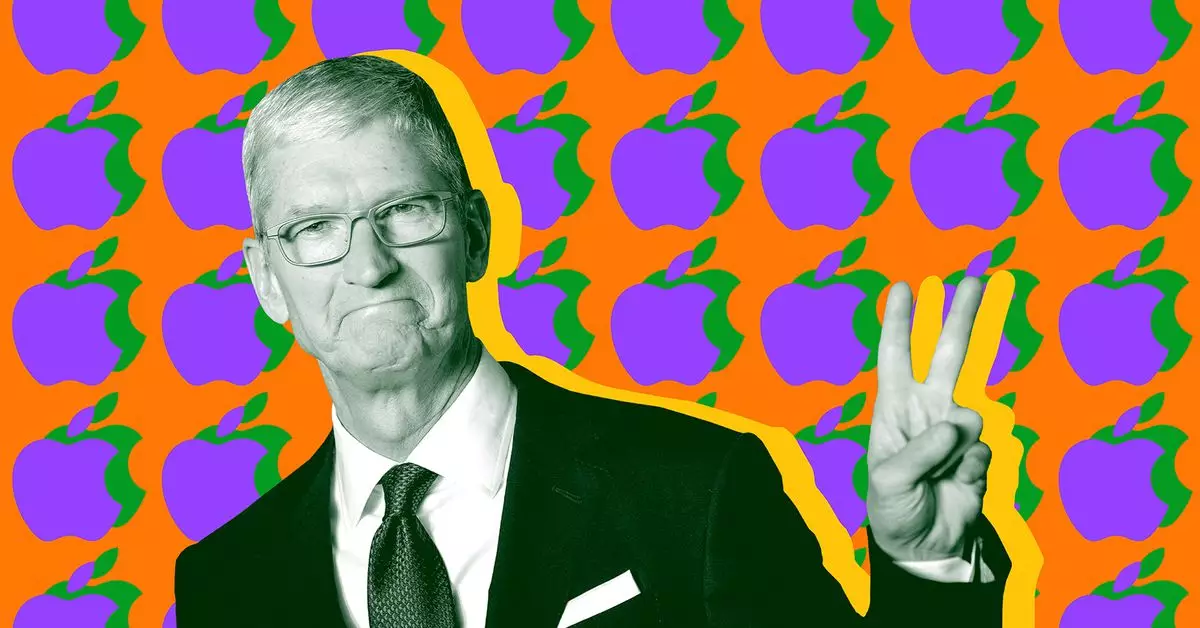In recent times, the intersection between technology leadership and political power has become increasingly pronounced. With political figures and tech titans forging connections that can significantly influence the direction of industry policies, donations to political events have emerged as a strategic gesture of goodwill. Tim Cook, Apple’s CEO, has made headlines once again by contributing $1 million to President-elect Donald Trump’s inauguration committee. This marks a notable moment in the ongoing relationship between tech executives and the political landscape, illustrating how personal ties and financial support can intertwine.
Cook’s donation is not an isolated instance but part of a broader trend where influential leaders from the technology sector rally behind political figures. Other prominent names, including OpenAI’s Sam Altman and Amazon’s Jeff Bezos, have also stepped into similarly supportive roles. This pattern raises questions about the motivations behind such financial commitments. While some may argue that these donations signify a desire for collaboration and stability, others view them as an attempt to secure favorable treatment and influence over emerging regulations and policies.
The potential implications of these relationships cannot be understated. By establishing ties with political figures, tech executives can help shape an environment conducive to their business interests. Cook’s rapport with Trump is particularly noteworthy; their interactions date back to Trump’s first term, where Cook communicated a willingness to work collaboratively on issues impacting technology and the economy while simultaneously positioning Apple as a key player in national interests.
The increasing visibility of these interactions reveals a strategy amongst tech giants to solidify their standing within governmental circles. Cook, who reportedly emphasizes his pride in his Alabama roots, views political traditions as a unifying element of American culture. His donation could be perceived not just as support for Trump but as an affirmation of the values he believes the inauguration embodies. However, it’s essential to distinguish between personal beliefs and corporate stance, as Apple itself is “not expected” to make further contributions, hinting at a more calculated approach to political engagement.
The gatherings — such as the dinner hosted by Bezos during Trump’s tenure and the frequent meetings at Mar-a-Lago — illustrate how these tech leaders leverage social settings to foster relationships that could translate into business advantages. Cook’s engagement with Trump mirrors a broader strategy employed by tech CEOs to navigate a complex political environment where influence is currency.
As we look ahead, the dynamics between technology executives and political powers will likely evolve, driven by the changing landscape of governance and public expectation. Cook’s decision to donate to Trump’s inauguration committee is emblematic of a larger narrative where the lines between corporate interests and political affiliations continue to blur. These interactions will shape policy discussions, tackle pressing societal issues, and influence how technology integrates into the fabric of governance.
Ultimately, this situation leaves us to ponder whether such financial commitments foster an environment of genuine collaboration and progress, or merely reflect a quid pro quo designed to preserve the interests of the powerful. As voters, businesses, and citizens, it is vital to scrutinize these relationships, ensuring accountability in both the technological advancements we embrace and the political leaders who guide us.


Leave a Reply
You must be logged in to post a comment.